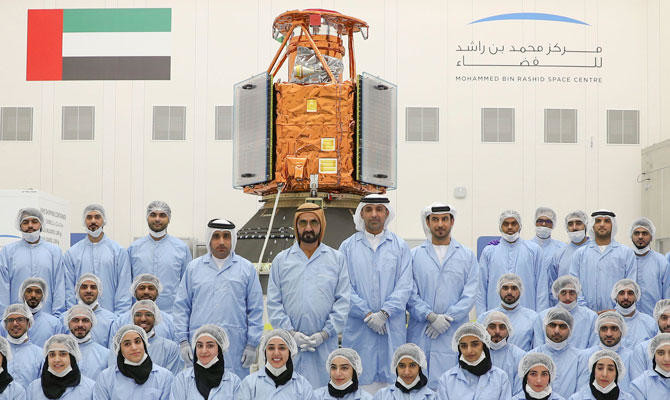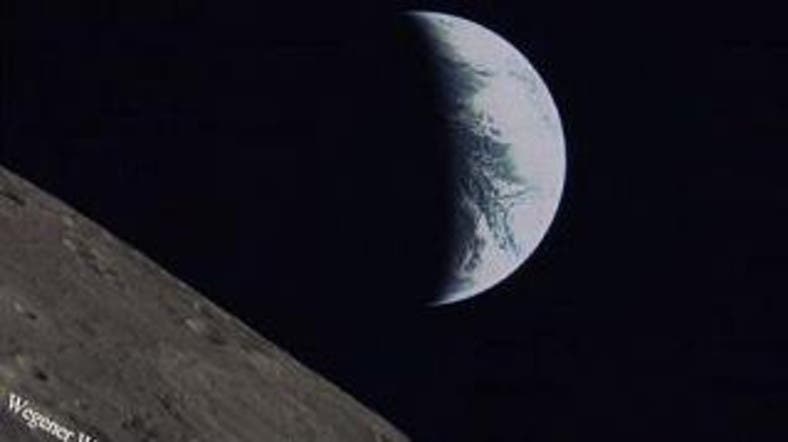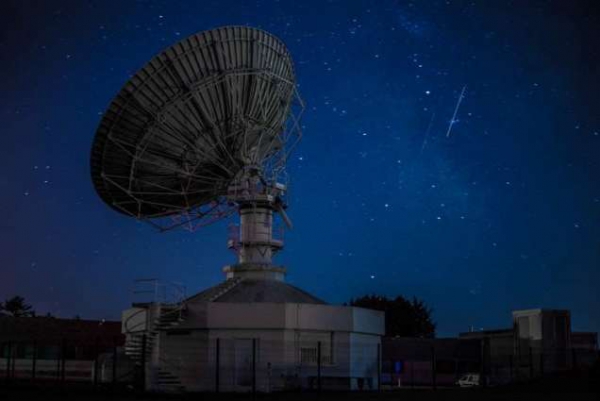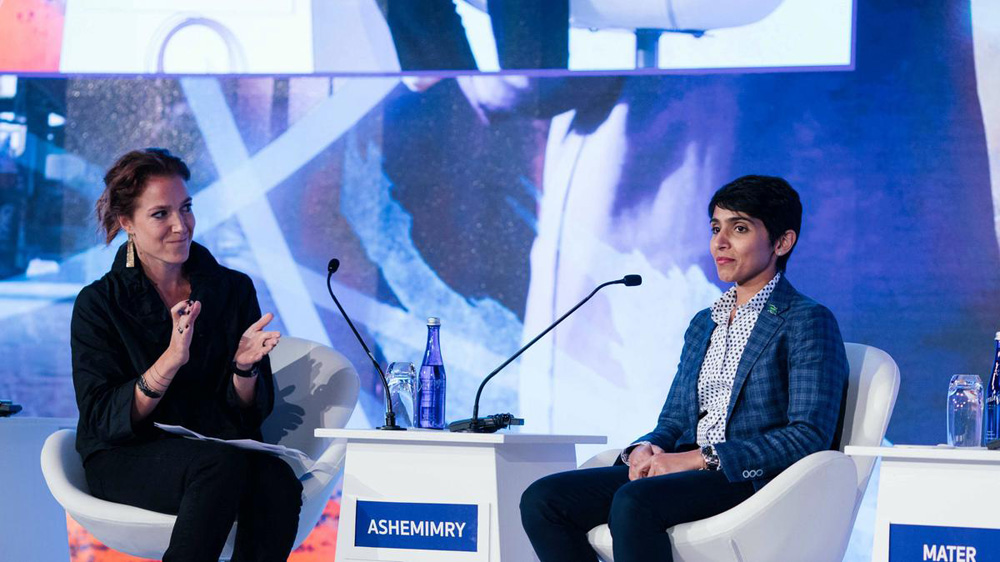Is anyone aware of the combined annual budget of the various Arab space agencies? For instance the space agencies of those 11 Arab countries (UAE, Saudi Arabia, Bahrain, Oman, Egypt, Algeria, Morocco, Jordan, Lebanon, Sudan and Kuwait)?
Saudi Arabia sets sights on space exploration
With the establishment of the Saudi Space Agency, Riyadh could organize Saudi space efforts more strategically and support the aims of Saudi Vision 2030.
Sunday 14/04/2019
Reaching for the stars. The first Saudi satellite for communications (SGS-1) before its launch from the Guiana Space Centre, last February. (SPA)
Dubai - Roscosmos, the Russian federal space agency, is gearing up for a visit by Saudi Prince Sultan bin Salman bin Abdulaziz, chairman of the board of the Saudi Space Agency, as the two countries iron out details of a space cooperation programme.
Roscosmos Director-General Dmitry Rogozin visited Riyadh with a delegation after Saudi King Salman bin Abdulaziz Al Saud established the Saudi Space Agency by royal decree on December 27, 2018.
Prince Sultan is expected to meet with Rogozin and Russian Minister of Industry and Trade Denis Manturov to discuss plans. Both sides agreed in February “to draw up a programme of bilateral cooperation.”
The Saudi delegation, due in Moscow April 17, is also to meet with Russian space companies as it looks to build collaboration and a partner network involving space sciences and exploration.
A former Royal Saudi Air Force pilot with more than 5,000 flight hours to his credit, Prince Sultan was the first Arab and first Muslim astronaut in space. He flew aboard the American Space Shuttle Discovery as a payload specialist in 1985. He was the youngest, at the age of 28, to fly on the space shuttle.
Prince Sultan was awarded the NASA Space Flight Medal for his participation in the 7-day mission of the STS-51-G mission, which carried three communications satellites, including the Arabsat-1B satellite belonging to the Arab Satellite Communications Organisation (Arabsat) to deploy into geosynchronous orbits.
Arabsat is a pan-Arab communications satellite operator with headquarters in Riyadh created to deliver satellite-based public and private telecommunications services primarily to Arab countries.
With 21 members, Arabsat has performed a vital role in developing communications for Arab countries for decades, with Saudi Arabia the major stakeholder and driver behind those efforts.
Arabsat has six operational satellites that provide services such as Direct-To-Home television broadcasting, broadband and telephone connectivity, satellite internet and VSATs, used to transmit narrowband data.
Like many other countries, Saudi Arabia is aiming to go beyond satellite operations to become a bigger player in space.
For years, the King Abdulaziz City for Science and Technology (KACST) has been the lead force for Saudi efforts in space, having established the National Centre for Remote Sensing Technology. KACST is expected to continue with its major role in scientific experiments, providing training to Saudi nationals and in the exchange of space-related technologies.
With the establishment of the Saudi Space Agency, Riyadh could organise Saudi space efforts nationally and internationally more strategically and support the aims of Saudi Vision 2030. Cooperation programmes with Roscosmos, which has the world’s most sophisticated space programme together with NASA, are expected to provide significant support to the Saudi efforts.
Saudi Arabia has various international cooperation agreements pertaining to space exploration, including those signed with Kazakhstan in 2011 as well as with China and Ukraine in 2017, covering space research, manufacture of spacecraft and components, remote sensing, satellite communications, space infrastructure and launch services.
Last year, Saudi Arabia participated in the Chinese lunar space mission Chang’e-4, which was launched in May 2018 and in which Saudi photography systems were employed.
Saudi Arabia has shown interest in developing low-cost satellite launch systems and in space transport industries, areas that could support its economic development agenda and create new industries.
At the Global Space Congress last month in Abu Dhabi, Saudi Arabia joined the new Arab Space Coordination Group, which aims to develop an advanced Earth monitoring satellite to track environment and climate changes.
The United Arab Emirates, which has prepared its first team of astronauts for a mission to the International Space Station, has built the region’s strongest space programme.
Space exploration has long included international partners in cooperation. The United States and Russia use each other’s spacecraft to journey to the International Space Station. The Arab Space Coordination Group has the potential to lay the foundation for an Arab Space Agency in the years ahead.
https://thearabweekly.com/saudi-arabia-sets-sights-space-exploration
Anyway I hope to see cooperation with SUPARCO
@BATMAN















